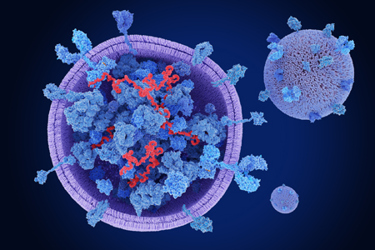Controlled Production Of MSC-Derived Extracellular Vesicles In Stirred-Tank Bioreactors
Source: Eppendorf, Inc

While extracellular vesicles show remarkable therapeutic promise, their manufacturing bottlenecks reveal a critical gap between biological potential and industrial reality. This case study examines the implementation of controlled bioreactor systems for reproducible, large-scale EV production.
Key focus areas include:
- Process Optimization: Systematic evaluation of stirred-tank bioreactor configurations compared to traditional static culture methods
- Quality Control Parameters: Identification and monitoring of critical process parameters affecting EV yield and characteristics
- Advanced Process Monitoring: Implementation of Raman spectroscopy for real-time nutrient analysis and process control
Conducted through a collaboration between iBET and the University of Navarra, this study demonstrates:
- The operational advantages of bioreactor systems in scaling EV production
- Methodologies for maintaining product consistency across production scales
- Technological approaches to address current manufacturing limitations
These findings contribute to the growing body of knowledge supporting the transition from research-scale to clinically relevant production volumes in cell-based therapeutics. Download the case study below to dive further into methodologies, comparative data analysis, and a comprehensive discussion of manufacturing implications.
access the Case Study!
Log In
Get unlimited access to:
Trend and Thought Leadership Articles

Case Studies & White Papers

Extensive Product Database

Members-Only Premium Content

Welcome Back! Please Log In to Continue.
X
Enter your credentials below to log in. Not yet a member of Bioprocess Online? Subscribe today.
Subscribe to Bioprocess Online
X
Subscribe to Bioprocess Online
